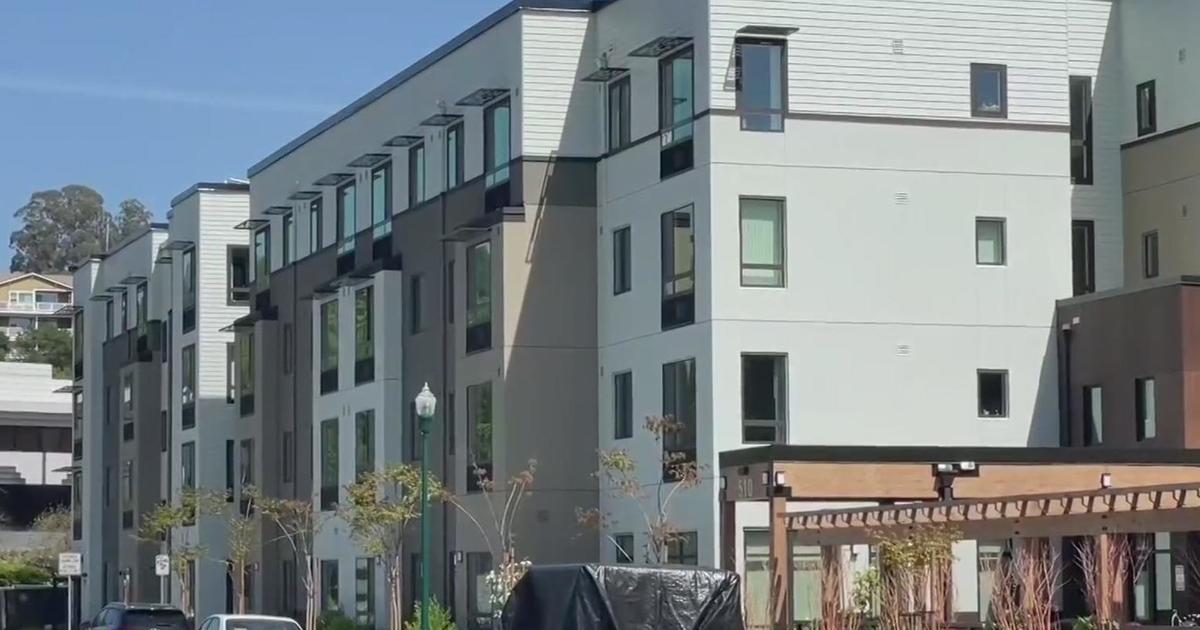CA First Responders Fight 'Frequent Flier' Abuse Of Emergency Services
FRESNO (KPIX 5) -- First responders in California are trying to tackle a crisis that impacts emergency crews across the country: People who tie up the system by calling 911 hundreds of times a year. They're known as frequent fliers and one Central California agency has taken a drastic measure to curb the problem.
"Not only are they abusing the ambulance service, they are abusing the hospital system," said Dan Lynch.
As an emergency medical services director Lynch has developed a kind of cowboy ambulance program. Instead of transporting anyone who calls (which is the state protocol), if you abuse 911 in Fresno County, they won't pick you up.
"We'll go check them out, but if they can sit up by themselves or walk, then they are on their own and the ambulance will not transport those patients," said Lynch.
In an investigation earlier this year, KPIX 5 discovered so-called "frequent fliers" are overwhelming ambulance service and clogging up emergency rooms all over the state. We found many of them are homeless, just looking for a sandwich and a warm place to sleep.
ALSO READ:
- Bay Area Ambulance Crews Beset by Non-Emergency Calls from 'Frequent Fliers'
- Homeless Calling 911 For Shelter A Drain On System Across Bay Area
Under the Central California EMS policy, a system abuser is defined as "an individual who has accessed the ems system at least once per week over a period of three months." If it sounds cruel, first responders in Fresno would invite you to look a little closer.
After being identified as frequent fliers, patients are given three written notices and a packet of resources with information about obtaining a primary care doctor, as well as given permanent housing. A behavioral health team of volunteer paramedics will also meet with them in between emergency calls to get to know them and to try to learn why they're calling so often.
"It's difficult because that frustration takes over, same call, same person all the time, it's frustrating," said Jeff Loyd.
Loyd is one of the paramedics on that volunteer team. He says volunteering is allowing him to make a difference and takes away some of the burnout tied to acting as a taxi service night after night.
"We're not looking at the bigger problem of what do they need, and just kind of putting a band-aid on it putting them in the hospital. And they come right back out, and it's gotten nowhere. What they need is the human touch," said Loyd.
16 people are currently under suspension, including Tenna Branaman's son Dale.
"Well, they say that they suspended his ambulance service because he is abusing it," said Branaman. She admits Dale calls 911 too often. "A lot! I mean a lot. I couldn't even count now," she said.
But as a mom, she can't help but worry about the time he actually may need to be transported. "I just wouldn't want to have that responsibility left up to the ambulance driver, they are not a doctor," she said.
Fresno's "no fly" list has its fair share of critics; among them are doctors of emergency medicine at UCSF. They don't' like the idea of refusing transport.
"That makes me very nervous," said Dr. Maria Raven, an Associate Professor of Emergency Medicine at UCSF.
"I think it's a very risky thing to do, I think it puts a lot of pressure on paramedics. I would rather they come to the emergency department if they need to. We can take care of them, we are trained to do it," said Dr. Raven.
At UCSF, she runs a different program to tackle the frequent flier epidemic, called the Emergency Department Information Exchange, or EDie. It allows hospitals to share information on frequent utilizers.
Once they are flagged in the system, they get one-on-one time with a social worker in the emergency department who can set them up with a primary care doctor, help with housing and develop a care plan.
"For the top 100, we have kind of been ticking people off one by one from that list and really trying to address their very, very complex medical and social problems," said Dr. Raven.
Back in Fresno, Dan Lynch told KPIX 5 that he's all for the EDie system, but it hasn't been embraced by hospitals in his county. So, with no other solution, he's taking matters into his own hands.
When we asked him how he would respond to his critics he said, "They don't have to worry. This is a very safe and dignified way to deal with individuals that are abusing the ambulance system. The decisions we made to implement a program like this is so that we could protect the rest of the community, so that they have excellent ambulance response times."
The Central California EMS abuse policy was approved by the board of Supervisors, local law enforcement and county counsel. In the six years it has been in existence, it has never had a bad outcome. Other counties and states have been asking about it and Minneapolis has now adopted a similar program.



